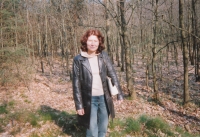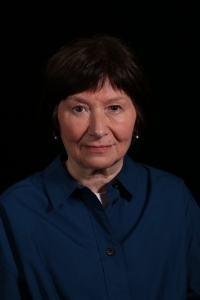I Didn’t Want To Die Behind Barbed Wire

Download image
Anna Slanina was born as Anna Slaninová on the 23rd of May 1952 near Zábřeh in Hlučínsko, to a family with Czech-German heritage. During the Second World War, when Hlučínsko was a part of Germany, her father was conscripted into the Wehrmacht. He fought on the French and Russian fronts and then worked as a gatekeeper in the mines in Wroclav and deserted near the end of the war. Many of the witness’ relatives as well as other locals from this region emigrated to German-speaking countries during the communist era. This gave Anna the opportunity to visit her relatives in the West for the very first time in the year 1965. Anna completed Střední škola společného stravování (High School of Communal Consumption) and worked in hotels in the region around Ostrava. She later studied at an arts night school program, worked in propagation in the Vítkovice Ironworks, in a house of culture and in propagating grocery stores. In February of 1985 she went to Austria on a ski trip with a girl friend and on the way back emigrated through Germany. She first requested political asylum in Germany, and shortly after citizenship on the basis of her Czech-German heritage. During her stay in a hotel for refugees she got to know Václav Hora, the owner of the exile publishing house Dialog in Frankfurt am Main. Thereafter they started to live together as partners. Anna Slanina helped him to run the publishing house and at the same time worked in small marketing agencies. She could visit Czechoslovakia again in August 1989, when her father developed cancer. The publishing house Dialog closed down in 1989. Václav Hora moved his expansive library to Czechia. To this day Anna Slanina lives alternating between Czechia and Germany and has both Czech and German citizenship.













